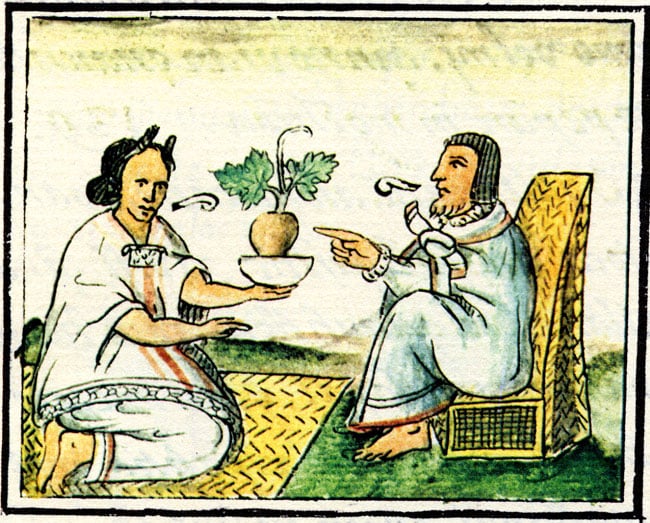 I’m not sure how many horses I’ve had to euthanize in my career. My best guess is that it’s probably somewhere between 200 – 300, over coming on 40 years. I don’t work with horses that are regularly suffering catastrophic injuries, so that helps keep the numbers down, I think. I also don’t euthanize horses on demand. That is, if a horse is healthy and is a solid citizen, I’m more than happy to devote a lot of effort to finding him a good home, but I won’t put him to sleep. I’m not saying that people who feel otherwise are wrong, that’s just my personal position. I couldn’t sleep at night if I did.
I’m not sure how many horses I’ve had to euthanize in my career. My best guess is that it’s probably somewhere between 200 – 300, over coming on 40 years. I don’t work with horses that are regularly suffering catastrophic injuries, so that helps keep the numbers down, I think. I also don’t euthanize horses on demand. That is, if a horse is healthy and is a solid citizen, I’m more than happy to devote a lot of effort to finding him a good home, but I won’t put him to sleep. I’m not saying that people who feel otherwise are wrong, that’s just my personal position. I couldn’t sleep at night if I did.
Putting a horse to sleep is an emotional decision, no matter what the reason: age, infirmity, illness, or accident. I like to think that my role is more than just being the person who pushes the plunger on the syringe. I like to think that my job is to help take care of the horse AND help take care of the horse’s owner. So, over the years, I’ve said a number of things to different horse owners in order to (hopefully) ease the pain from what is an obviously awful emotional experience.
I’m not a psychologist and I haven’t been trained in psychology. What I say to people isn’t necessarily “right,” they are just things that I’ve found to be helpful in my own experience of dealing with this most difficult time. Maybe, if you’ve had a recent loss, something I said might help you, too.
NUMBER 1 – THERE’S NO RIGHT TIME
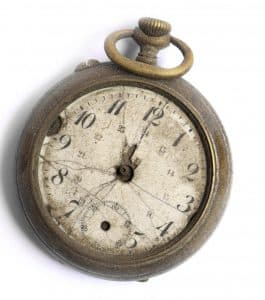 When It comes putting a horse to sleep, there is no such thing as the “right” time. Putting a horse to sleep never feels good. The process always comes with some degree of sadness, confusion, and fear.
When It comes putting a horse to sleep, there is no such thing as the “right” time. Putting a horse to sleep never feels good. The process always comes with some degree of sadness, confusion, and fear.
In fact, there are only two scenarios when you can put a horse to sleep.
The first is before you want to. And, let’s be honest. You never want to.
Sometimes there’s no choice. A broken leg. A severe colic. Unexpected events can be horrible, but they usually leave you with no other choice than to stop the suffering. Even though you only have one choice, it’s still a terrible one. You have to make the choice long before you want to. The decision was made for you. It’s unexpected, it’s heartbreaking, it’s terrible, and you don’t want to… but you have to.
It’s a lot harder when a horse is suffering from chronic conditions. Laminitis. Crippling osteoarthritis. Old age and its assorted infirmities. Decisions to let these horses go can be fraught with guilt and anxiety. Making things harder are all of the people that may tell you that there’s still hope if you only do this or try that. You know your horse is on a downhill slide, but maybe you think you might be able to do something… it’s a terrible sort of desperation that leads people to try all sorts of useless treatments, medications, and 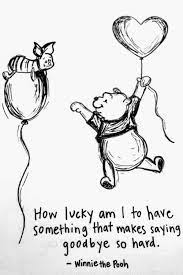 supplements. You don’t want to let him go, but you don’t want to let him suffer. You’re thinking about letting him go, but you’re wreaked with anxiety and doubt. You’re driven by love and a fear of loss to keep trying.
supplements. You don’t want to let him go, but you don’t want to let him suffer. You’re thinking about letting him go, but you’re wreaked with anxiety and doubt. You’re driven by love and a fear of loss to keep trying.
But when worrying about the first scenario, I try to get people to think about the second possible scenario. The second one is when you wish you had done it sooner. Of the two possible choices, this one is much, much worse. The result is the same, but the emotional toll is far more difficult in the long run. If you wait too long – the horse with osteoarthritis who has been having a hard time getting up is now stuck in the stall or the horse with laminitis is losing his feet – you then have to reconcile your decision to keep going with the fact that all of the waiting and hoping only made the horse suffer more. I don’t think that’s a good place to be.
NUMBER 2 – IT’S ALWAYS HARD
No matter how you want to think about it, putting a horse to sleep is always hard on the people that are left behind. It’s never going to be easy. It’s not supposed to be easy.
NUMBER 3 – DOING THE RIGHT THING ISN’T ALWAYS EASY
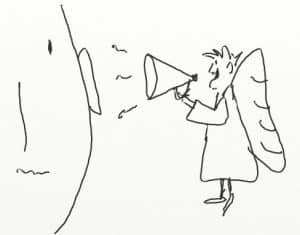
When I was 18 years old, I took my old dog, Happy, to the veterinarian to be put to sleep. He was probably about 12 years old, and Happy’s kidneys were failing. He had lost a bunch of weight (and he wasn’t a big dog) and he couldn’t stop urinating everywhere.
I held Happy while the veterinarian gave him the shot that ended his life. I had never cried so hard. I’ve never forgotten how it felt. I’ve never regretted it – not for one minute. I know I did the right thing for Happy, but it wasn’t easy.
NUMBER 4 – FOCUS ON HOW YOU GOT HERE, NOT WHAT’S HAPPENING
The biggest reason that you feel so terrible when it’s time to let a horse go is because of the loss that you’re going to feel. The reason you feel all of that loss is because of all of the good times that you’ve had, all of the wonderful memories that you’ve created together. Even though the time surrounding the awful decision to let your horse go it emotionally raw, you have to think about all of the good memories. Grief can easily overwhelm you, but the best way that you can keep your horse alive is to share the stories of all of the good times that you had with him.
NUMBER 5 – HORSES LIVE MOMENT TO MOMENT
 When we put a horse to sleep, we are the ones burdened with the loss. Horses don’t live in a state of anticipation. They don’t think about going to see the grandkids and the don’t worry about what’s going to happen at work tomorrow. They’re in the moment. When we’re contemplating letting a horse go, it’s because that moment is awful for us. But that moment is even worse for the horse or you wouldn’t be making such an awful decision. At least we can make the next moment better for the horse.
When we put a horse to sleep, we are the ones burdened with the loss. Horses don’t live in a state of anticipation. They don’t think about going to see the grandkids and the don’t worry about what’s going to happen at work tomorrow. They’re in the moment. When we’re contemplating letting a horse go, it’s because that moment is awful for us. But that moment is even worse for the horse or you wouldn’t be making such an awful decision. At least we can make the next moment better for the horse.
NUMBER 6 – THIS WAS ALWAYS GOING TO HAPPEN
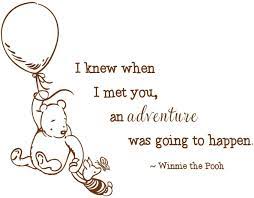 One of the problems with taking care of a horse is that the end is inevitable. One of you is going to have to go first; due to the vagaries of the lifespan imposed on individual creatures, it’s usually the horse that leaves us before we leave him. It’s the same with all of the animals for whom we care. The only way to get around that eventuality is to take care of animals like macaws, or Galapagos tortoises. You can’t ride a macaw, or course, and tortoise barrel times are notoriously slow.
One of the problems with taking care of a horse is that the end is inevitable. One of you is going to have to go first; due to the vagaries of the lifespan imposed on individual creatures, it’s usually the horse that leaves us before we leave him. It’s the same with all of the animals for whom we care. The only way to get around that eventuality is to take care of animals like macaws, or Galapagos tortoises. You can’t ride a macaw, or course, and tortoise barrel times are notoriously slow.
NUMBER 7 – ALL OF YOUR EMOTIONS COME OUT AT ONCE
The love we have for our horses is cumulative. It adds up over the years and fills ours heart with happiness most every day. Memories pile up. Then, suddenly, we’re hit with the realization that it’s about to end. I think that when it’s time to let go, all of the memories try to come out all at the same time. It clogs the emotional pipes and then the pipes burst. There’s a word for this terrible experience: normal.
NUMBER 8 – THERE’S A HOLE IN YOUR HEART THAT NEEDS FILLING
 I think that the reason that we love horses (and dogs, and cats, and other animals who we are lucky enough to take care of) is that they fill a hole in our heart. There’s some common thread in people that love animals that compels those people to look after the animals. Horses get our love and affection and return it in spades. Riding horse allows us to borrow the ability to run like the wind, to overcome seemingly insurmountable obstacles, and find a world that was otherwise unavailable. Horses introduce us to grace, spirit, and freedom – they are happy to do as we ask, but never fail to remind us that they could easily do whatever they want. People that love horses need that. And, when it’s time to let go of one lucky horse, the hurt will subside, the memories will endure, and, hopefully, you’ll find another lucky horse to fill that hole.
I think that the reason that we love horses (and dogs, and cats, and other animals who we are lucky enough to take care of) is that they fill a hole in our heart. There’s some common thread in people that love animals that compels those people to look after the animals. Horses get our love and affection and return it in spades. Riding horse allows us to borrow the ability to run like the wind, to overcome seemingly insurmountable obstacles, and find a world that was otherwise unavailable. Horses introduce us to grace, spirit, and freedom – they are happy to do as we ask, but never fail to remind us that they could easily do whatever they want. People that love horses need that. And, when it’s time to let go of one lucky horse, the hurt will subside, the memories will endure, and, hopefully, you’ll find another lucky horse to fill that hole.







